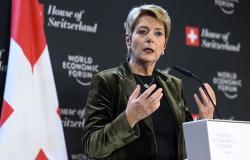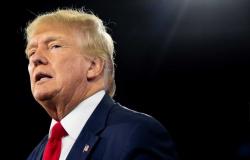It is customary when it comes to talking about the Middle East to resort to a quote from General de Gaulle contained in his Memoirs where he spoke of “flying over the complicated Levant with simple ideas”.
Since the qualification of the former French head of state, events have not proven him wrong. Thus, the crackling of weapons has never left the Middle East, especially in the Israeli-Palestinian conflict with stories and narratives that have punctuated television news around the world for several decades. Nothing is new in this crisis which waltzes from latency to permanence of war. With the Hamas attack of October 7, 2023, something else happened so that the media agenda or agenda setting is dominated only by this issue, even relegating to the background what is happening in Ukraine which, for two years, occupied public opinion in Western countries as well as those of the “Global South”.
In the Israeli-Palestinian crisis, the actors and mentors were known. On one side Israel with its traditional Western supports and Palestine with the Arab-Muslim streets and palaces. But for three years, this area of the Middle East has experienced unsuspected and unprecedented geopolitical upheavals. The “Abraham Accords” signed in 2020 under the aegis of the United States during Donald Trump’s first term allowed a normalization of relations between Israel and many Arab countries such as the Emirates, Morocco, Sudan, Bahrain . Even the giant and leader of the Arab world, Saudi Arabia, was in talks to join this quartet, giving this geographical area the opportunity to enter a new era, with the consequent relegation of the Palestinian question.
It is true that the dissensions and contradictions between Palestinians and above all the absence of legitimacy and leadership of those who are supposed to carry their fights, Fatah and Hamas, have meant that the defense of their cause has deteriorated within Arab countries, their primary supporters. Only Iran, which is not an Arab country, has remained the mentor and leading actor alongside the Palestinians, making their cause a national and vital issue, both in its domestic and foreign policies. It took this brilliant action by Hamas for the Palestinian cause to unite the opinions of the Arab world.
-With this return to the forefront of the Palestinian cause, it should be noted that the gap between the West and the “Global South” is widening further and each global crisis further reinforces this divide between these two parts of the world. The Palestinian crisis once again shows that the differences between these two entities against a backdrop of ideological and political differences are profound. As with Ukraine, the Middle East has become an export zone for dissensions and differences between reigning powers and other emerging powers who want to exert more influence on global governance.
Introduced into the Middle East zone with the agreement it signed with Iran, China holds a certain influence there which gives it its economic power. The latest developments with the fall of the Syrian regime despite the declared and affirmed support of Russia show the continuation of what is happening almost everywhere in the world with the game of alliance of powers. This intrusion of actors, new and old, brings a new redefinition of the map of this area with the emergence of two strong men, the Turkish President Recep Tayyip Erdogan and the Israeli Prime Minister, who on both sides represent this caesura that there is in the world between the Western camp and the “Global South”. Which will give this area new colors and another dimension…





